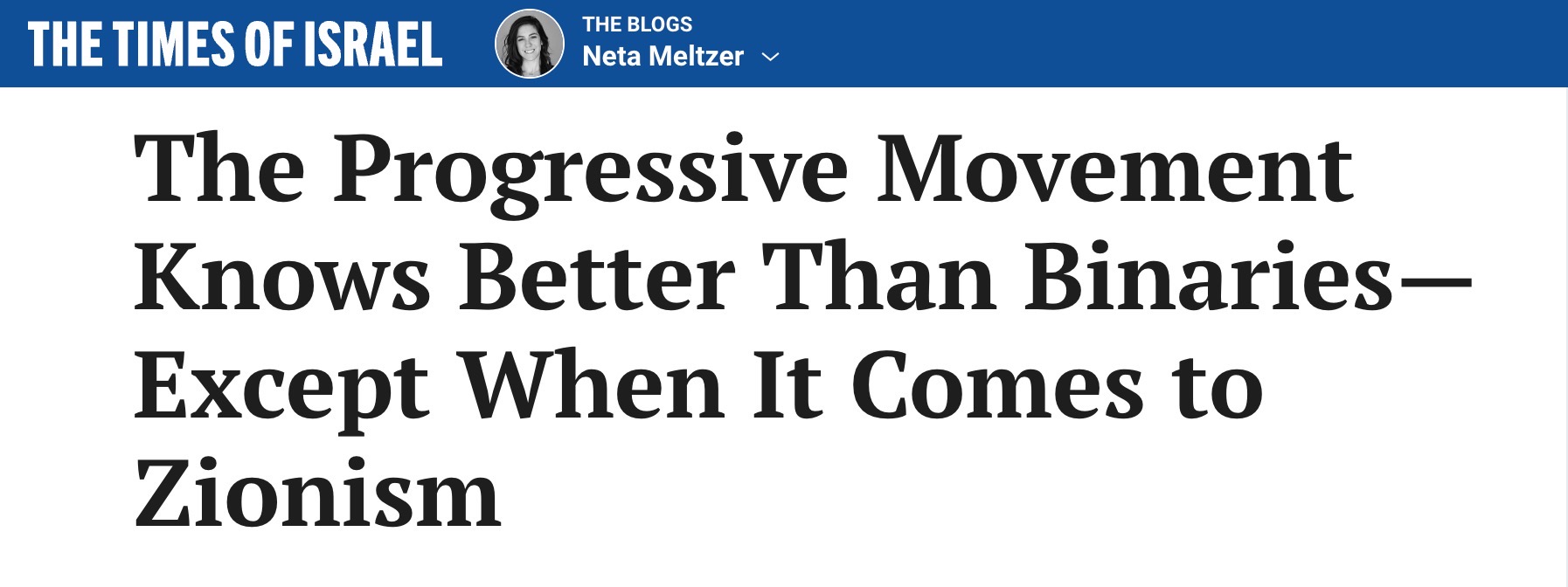
I was once added to a group text with a number of individuals representing several progressive organizations. We were embarking on a collaborative campaign to advance reproductive rights. We were invited, warmly, to introduce ourselves and say hello in our native languages. It was refreshing to receive such an invitation. It was a shame, though, that I didn’t feel like I could fully participate.
My name is Neta. My native language is Hebrew. I was born in the state of Israel. Had I replied to the group with “שלום” and an explanation of the meaning of my name (a sapling, for those interested), I knew the response could be, at best, cold, and at worst, openly hostile. For many in the progressive movement, I’m “white” (Jews are not ‘white,’ an unhelpful and oversimplified category.); my grandparents who fled Europe and were founding members of their kibbutz community were “settlers” (The Jewish people are indigenous to the land of Israel.); and Israel is a “colonialist” enterprise (It is in fact the opposite, the return of an indigenous population to their ancestral homeland.). With these anticipated reactions in mind, I held back, sharing only my name and a kind hello.
These labels, these frameworks, isolate Jews in progressive spaces. And the fact that openly discussing my name, my origins, and my community might trigger hostility from others limits my ability to engage fully in those spaces. My identity is not a provocation. And I believe that one critical way to change how I am received, how Jews are received, in spaces like progressive campaigns and movements is to begin a shift in which we move beyond binary frameworks…